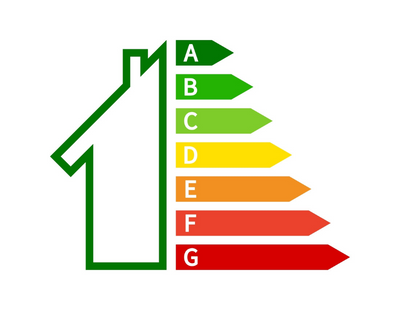A green premium based on energy efficiency is emerging in the UK’s property market, according to a new report by high-street bank Santander.
The report - Buying into the Green Homes Revolution - surveyed more than 2,300 UK-based homebuyers and owners, estate agents and mortgage brokers, and found that buyers are placing an average 9.4% premium on homes that have already been retrofitted.
On the average UK house price of £283,000, this equates to an average increase of £26,600 – more than twice as much as the average £10,000 it costs to make energy efficient upgrades to a home.
In addition, the study showed that estate agents are reporting buyers are paying an average of 15.5% more for a home that meets high energy efficiency standards, including over a third (36%) who said buyers are paying more than 20% extra in their area.
The majority of agents (79%) say they are witnessing more buyers asking about energy efficiency than they were 12 months ago. This comes as the UK tackles an energy crisis and a cost-of-living crisis in general, brought about by various factors.
In fact, the study revealed that prospective buyers now rate energy efficiency as one of the most attractive features of a home. During the Covid-19 pandemic, there was a trend towards buyers wanting a bigger garden or a home office (to cope with lockdowns and working from home), but now energy efficiency is put forward as more desirable than these features as soaring energy costs cause concern.
Similarly, when questioned on what they would be most likely to invest in for their home today, 36% of people picked an energy efficient boiler. By contrast, only 27% opted for the more traditional upgrade of a new kitchen. Santander’s research also found that the 2020 hot tub trend (again, to make lockdowns bearable) has well and truly passed, with just 5% likely to invest in this feature now.
Despite consumers being increasingly aware of the benefits of having and buying a green home, the research also suggested a knowledge gap when it comes to understanding what needs to be done to make a home more energy efficient.
The UK government has a stated aspiration target that all homes should have an EPC rating of C or above by 2035, as part of its net zero by 2050 goal, but at present only a third of UK homes meet this target. That means approximately 19 million homes need retrofitting.
In spite of this, more than half (58%) of respondents didn’t know what EPC (Energy Performance Certificate) actually stood for. Meanwhile, three in five (60%) people did not know the EPC rating of the current property they live in, and just 15% would strongly agree that they have found it easy to access information about energy efficiency.
This knowledge gap regarding EPCs is particularly significant when you consider that estate agents say, on average, it’s taking them up to four months longer to sell properties with a poor EPC rating.
Graham Sellar, head of mortgages at Santander UK, commented: “There appears to be a clear increase in the desirability of energy efficient properties as people face the reality of rapidly increasing energy bills, with today’s buyers more likely to pay a premium for a retrofit than a fitted kitchen.”
He added: “But there is a huge amount of work to be done to ensure homeowners understand the changes they need to make and the importance of both the economic and environmental benefits of making them. Lenders, government, construction companies and others in the housing industry need to come together to support people and policies that will drive forward widespread change.”
Santander has compiled five recommendations for government to deliver the support required to make sure net zero targets are met:
-
Enhance the existing EPC ratings framework while working to develop a more robust and accurate energy performance certification scheme. EPC ratings need to be independently verified, more consumer-friendly, and regularly updated, to allow timely data to be accessed from an easily accessible central database.
-
Introduce a standardised toolkit backed by the Energy Savings Trust (EST) that could be given to consumers at every home financing and refinancing opportunity. This would be supported by a government-led awareness raising campaign to launch the introduction of the toolkit and signpost to it as a central source of information.
-
Explore how taxation could be used as a lever to drive demand, for example stamp duty rebates for homebuyers who have invested in retrofitting property they have bought.
-
A clear and realistic timeline for improving minimum energy efficiency standards (MEES) for domestic private rented and owner-occupied properties.
-
Establish the skills infrastructure and capacity for retrofitting at the necessary scale. This should include introducing new qualification (e.g., T level) to teach the skills needed to carry out the retrofitting/decarbonisation of buildings, and supplement this with a kick starter scheme for green skills to equip newly qualified retrofitters with the necessary experience. A long-term government commitment is necessary to give firms the confidence to invest in people and training.













.png)


.jpg)




.png)



Join the conversation
Be the first to comment (please use the comment box below)
Please login to comment